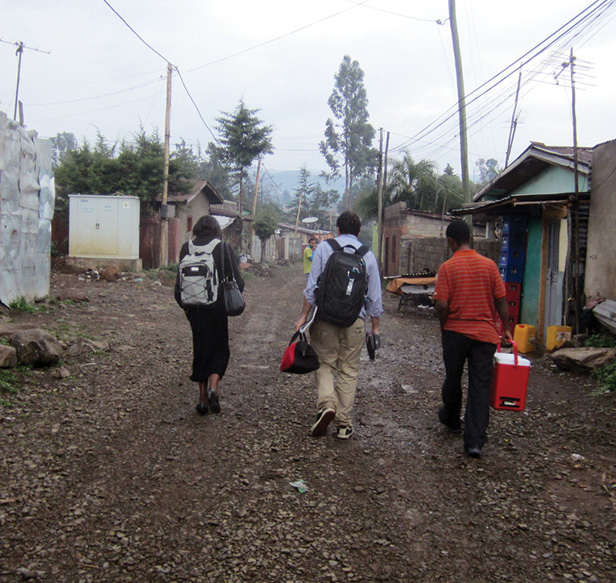
Tuberculosis remains a stubbornly persistent killer in Africa, Asia, and South America, striking about nine million people a year. Multidrug-resistant strains are especially challenging to treat. Now CoolComply, a modified soft-drink cooler developed by researchers at MIT’s D-Lab, could help.
People with strains of TB that don’t respond to ordinary antibiotics require an 18-month course of treatment with drugs that must be taken several times a day and kept at a low temperature; if the drugs overheat, a gas that can make patients violently ill is released. But controlling the temperature is difficult in places where electricity is often unavailable.
José Gómez-Márquez, who runs D-Lab’s Little Devices Group, says the modified thermoelectric cooler monitors the temperature inside, transmitting an alarm if it gets too high. The device, which can run on solar cells, also records the date and time it’s opened to allow a single-dose packet to be dispensed—which helps monitor whether patients are taking all their doses, as they must do for the treatment to work. A built-in cell-phone transmitter sends the data to a central health facility.
The idea originated with Massachusetts General Hospital doctors, who said that many patients without refrigerators are provided with coolers that require daily deliveries of ice. The ice alone costs $600 a year—double the cost of the CoolComply system—and visiting health workers must be employed to check compliance, limiting the number of patients who can be treated.
CoolComply prototypes are now being tested in Ethiopia.
Keep Reading
Most Popular
Large language models can do jaw-dropping things. But nobody knows exactly why.
And that's a problem. Figuring it out is one of the biggest scientific puzzles of our time and a crucial step towards controlling more powerful future models.
How scientists traced a mysterious covid case back to six toilets
When wastewater surveillance turns into a hunt for a single infected individual, the ethics get tricky.
The problem with plug-in hybrids? Their drivers.
Plug-in hybrids are often sold as a transition to EVs, but new data from Europe shows we’re still underestimating the emissions they produce.
Stay connected
Get the latest updates from
MIT Technology Review
Discover special offers, top stories, upcoming events, and more.